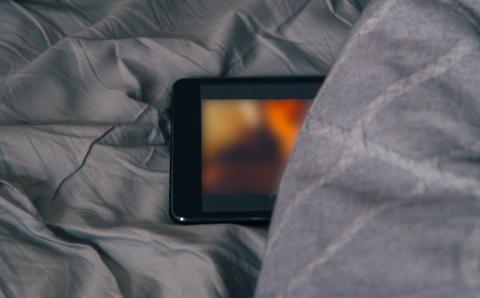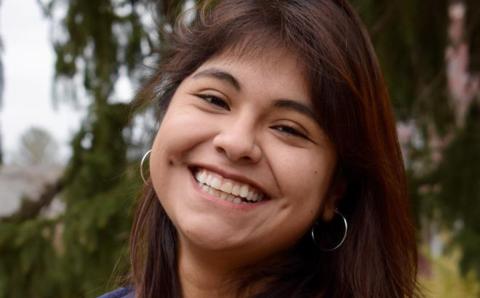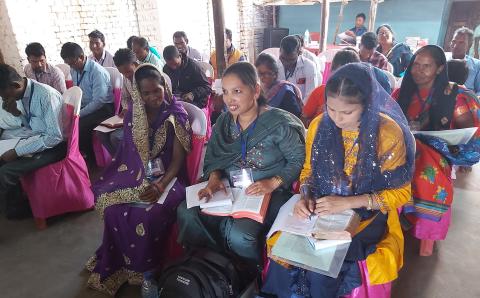A group of 37 people representing congregations from California, Iowa, New Mexico, and parts of Canada traveled Oct. 19-25, 2022, to the southern United States to explore racial reconciliation by visiting key sites in American civil rights history. The trip, called Sankofa, was sponsored by World Renew and supported by the office of Race Relations of the Christian Reformed Church. It paired Black Americans with non-Black travelers to learn and talk about racial injustice in community. The inaugural Sankofa happened three years ago. COVID restrictions prevented another trip until 2022. The itinerary was slightly different, but the vision remained the same.
The diverse group visited museums and churches, listened to stories of pain and injustice, and walked through Southern streets that were the backdrop to the terror and courage of the early Civil Rights movement.
Their first stop was at the National Underground Railroad Freedom Center, in Cincinnati near the Ohio River, a great physical barrier that separated the slave states of the South from the free states of the North. Next the group traveled to the National Museum of African American Music in Nashville, Tenn. It’s the only museum dedicated to preserving and celebrating the many musical genres created, influenced, and inspired by African Americans, and its collections demonstrate how music has been a means of expression and even survival for Black Americans.
Other museums and memorials the group visited included the Civil Rights Memorial of the Southern Law Poverty Center, the National Civil Rights Museum, and the Legacy Museum of the Equal Justice Initiative. They also walked across the Edmund Pettus Bridge in Selma, Ala., a National Historic Landmark that was the site of the brutal Bloody Sunday beatings of civil rights marchers during the first march for voting rights.
The group also heard from a man who participated in that Bloody Sunday march “His descriptive story about the experience―the screams, the tear gas, and the running―that was very painful to hear,” said Viviana Cornejo, a race relations educator for the CRCNA who traveled on this Sankofa journey.
The group attended a worship service at 16th Street Baptist Church in Birmingham, Ala., where in 1963 four known Ku Klux Klan members planted sticks of dynamite and set them off during a Sunday morning service. The explosion killed four girls and injured many others. This terrorist bombing marked a turning point in the Civil Rights movement and also contributed to support for the passage of the Civil Rights Act of 1964.
The final day of the journey, the group visited the Lorraine Motel in Memphis, Tenn., where Martin Luther King Jr. was assassinated on April 4, 1968. The motel was saved from foreclosure in 1982 and became America’s first civil rights museum.
Those who went on the 2022 Sankofa tour said it was an incredibly rewarding, once-in-a-lifetime opportunity for many to experience African American history and explore key civil rights moments in U.S. history in an experiential way. Helen Powell, one of the trip organizers from World Renew, said that the trip was life-changing. “It showed me that people from various ethnicities and backgrounds are willing to do the journey (of racial reconciliation) together, to learn the truth, to reconcile, and to move forward,” she said.
About the Author
Kevin Hoeksema, CRC Communications








